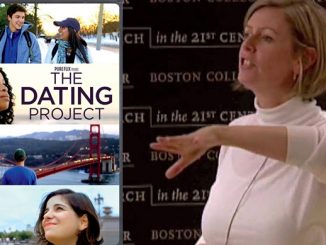
Analysis: Cardinal Parolin at the elite Bilderberg meeting

Vatican City, Jun 6, 2018 / 04:26 pm (CNA).- Cardinal Pietro Parolin, Vatican Secretary of State, will take part in the Bilderberg Conference, an annual private gathering of global political, business and media leaders, set to take place this year in Turin, Italy, June 7 – 10.
Cardinal Parolin’s name is included in the list of 131 participants in this year’s Bilderberg meeting.
His participation in the meeting has not been officially announced by the Vatican, though sources within the Secretariat of State have confirmed that he is scheduled to take part in the meeting.
If his participation were confirmed, it would be the first time high-ranking Vatican official has taken part in the Bilderberg Conferences.
Started in 1954 the Hotel de Bilderberg in Oosterbeek, The Netherlands, and named after the same hotel, the Bilderberg Conference gathers each year some 120 – 150 participants, among them European and North American political élites, along with industrial, financial, academic and media figures.
The first meeting took place at the invitation of Prince Bernhard of Lippe-Biesterfeld. Co-founders of the meeting were Polish politician Jozef Retinger, former Belgian prime minister Paul van Zeeland and Paul Rijkens, who was then the head of Unilever.
The success of the first meeting brought the organizers to stage an annual meeting.
According to the groups’ official website, about two-thirds of the participants come from Europe, and the rest from North America, and one-third are political figures or government officials.
The original meeting objective was to strengthen US – European relations. Over the years, the annual meetings became a forum for discussion on a wider range of topics, from ecology to trade and monetary policies.
This year’s meeting is set to discuss populism in Europe, the challenges of inequality, the future of work, artificial intelligence, US midterm elections, free trade, US global leadership, Russia, quantum computing, Saudi Arabia and Iran, the post-truth world, and other current events.
The Bilderberg meeting’s official website stresses that discussions are private, no minutes are taken and no reports are written.
The meetings are held under the so-called “Chatham House Rules,” an agreement typical of off-record meetings among academics or political leaders. According to that agreement, participants are free to use the information received, but they cannot disclose the identity nor the affiliation of speakers, nor can they disclose the other participants taking part in the conversation.
Dubbed by critics to be a kind of “global shadow government”, and targeted by protesters who picket the meeting, the Bilderberg meeting has has an official website since 2011, and publishes the names of participants in the annual meeting the day before the gathering begins.
Cardinal Parolin’s participation may be an expression of the “culture of the encounter” encouraged by Pope Francis. The pope has often asked officials to engage a dialogue with the world.
Receiving the Charlemagne Prize May 6, 2016, Pope Francis stressed that ”today we urgently need to engage all the members of society in building ‘a culture which privileges dialogue as a form of encounter’ and in creating ‘a means for building consensus and agreement while seeking the goal of a just, responsive and inclusive society.’”
The cardinal’s participation in the Bilderberg Group could be part of a strategy of dialogue the Holy See is engaging with small influential élite group.
It is noteworthy that last year, Cardinal Pietro Parolin took part in the World Economic Forum in Davos, and there he delivered Jan. 19 a speech in which he listed the aims of pontifical diplomacy.





